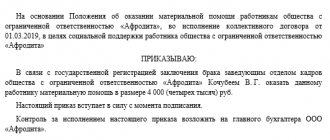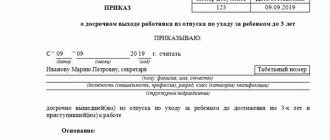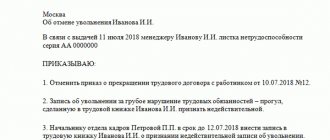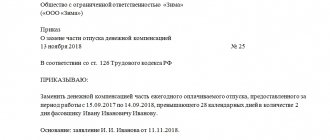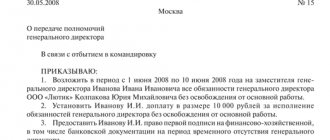What cases is it issued for?
The list of cases for which a court order is issued is specified in Article 229.2 of the APC. An application for a court order must contain requirements confirmed by contractual relations. Documents regulating commercial relations (rent, lease, loan, etc.) will help prove the debt. There are circumstances in which transactions are carried out once without bilateral documentation. In these situations, it is necessary to raise all documentation on the services provided, where a signature was placed on acceptance of unloading - provision of services (works).
Under any circumstances, it is necessary to draw up an additional document that will establish the existence of a debt.
Drawing up and submitting an appeal
Applications for the issuance of court orders do not have a specific form, but the following points must be included in the text:
- Name of the arbitration court.
- Information about the creditor and debtor.
- Description of the circumstances and references to the documents from which the obligations arose.
- Request for a court order.
- List of documents attached to the application.
- Signature of the applicant or his representative.
A sample application for a court order is available on the website. In the corridors of the judicial authorities you can also find sample forms that correspond to the general structure of the document.
Drawing up an application
In accordance with Part 2 of Art. 229.3 of the APC, the application must contain the following information:
- Name of the speaker;
- Information about the creditor and debtor. This includes their name, place of permanent residence/registration, date, place of birth, form of legal entity, legal entity. address, INN, OGRN, personal details;
- Description of the circumstances on the basis of which the debt arose. Data on the date of conclusion and execution of the contract, details of the document on the basis of which the amount of debt, penalties, and penalties were calculated.
- List of attached documentation:
- Payment order (to confirm payment of state duty);
- A document that confirms that you have notified the principal that a court order has been issued;
- Documentation confirming the validity and legality of penalties;
- Power of attorney, if a representative participates in legal proceedings
- Extract from the Unified State Register of Legal Entities (can be downloaded from the Federal Tax Service website nalog.ru and printed)
- Signatures of the applicant or representative.
Court order in arbitration proceedings
To obtain a court order, you must submit an application to the arbitration court. In this case, the rules of jurisdiction must be observed (§ 2 of Chapter 4 of the Arbitration Procedure Code of the Russian Federation). In the general case (Article 35 of the Arbitration Procedure Code of the Russian Federation), the claim is filed at the location of the defendant. The corresponding rules also apply to court orders (Part 1 of Article 229.5 of the Arbitration Procedure Code of the Russian Federation). The procedure for filing and the content of the application are clearly regulated by the Arbitration Procedure Code of the Russian Federation. The application must contain (part 2 of article 229.3 of the Arbitration Procedure Code of the Russian Federation):
- the name of the arbitration court to which it is filed;
- information about the claimant:
- Name,
- place of residence or location, address at which postal services are carried out,
- TIN and OGRN (for organizations),
- Bank details;
- information about the debtor:
- Name,
- place of residence or location,
- for a citizen-debtor - date and place of birth, place of work (if known),
- TIN and OGRN (for organizations),
- bank details (if known);
- the claims of the claimant and the circumstances on which they are based;
- documents confirming the validity of the claimant's claim;
- list of attached documents.
An application for the issuance of a court order must be signed by the claimant or his representative (Part 3 of Article 229.3 of the Arbitration Procedure Code of the Russian Federation). If the application is signed by a representative, a power of attorney is attached to it.
In addition to the documents substantiating the claims of the claimant, a document (payment order or bank receipt) confirming payment of the state duty (Part 4 of Article 229.3 of the Arbitration Procedure Code of the Russian Federation) is attached to the application for issuing a court order.
After preparing the application, but before filing it with the court, a copy of it must be sent to the debtor. This is necessary because Part 4 of Art. 229.3 of the Arbitration Procedure Code of the Russian Federation requires the following to be attached to the application when submitting it: “a notification of delivery or other documents confirming that the claimant has sent to the debtor a copy of the application for the issuance of a court order.” The best options for sending a copy are a courier service or a valuable letter with a description of the attachment and a receipt receipt sent by Russian Post.
An application can be submitted to the arbitration court in two ways. The first is classic – on paper, with all the necessary attachments. Moreover, copies of documents in this case must be certified. The second is in electronic form. In this case, it is possible to submit both in the form of an electronic document signed with an electronic signature, and by filling out a form on the website of the arbitration court.
A sample application in paper form is given in Example 1.
Features of the arbitration process
The first thing that catches your eye is the possible absence of parties in the AC. In fact, the court does not examine the evidence base after accepting the application. To make a decision, the judge relies only on the attached documentation. The debtor does not take part in the collection of evidence, but he has the right to file an appeal if he disagrees with the demands put forward by the collector.
What distinguishes arbitration writ proceedings from civil ones is the absence of other persons in the case other than the principal and the creditor. The process takes place without the participation of prosecutors, lawyers, experts and other persons directly involved in the case.
The positive aspects of this order include:
- Government duty. It is half the state duty that would be charged for a claim for collection. For example, the amount of the claim is 200 thousand rubles, the fee will be 7,000 rubles, however, when filing an application, the state duty will be reduced to 3,500 rubles (according to clause 4.1 of Article 333.21 of the Tax Code of the Russian Federation);
- No need for a claim. The filing of an application is not subject to the time limit provided for the defendant to familiarize himself with the claim;
- Absence of a counterclaim from the debtor;
- The court does not change the amount of penalties, penalties, or interest.
Application to the arbitration court for the issuance of a court order
Sample application for issuance of a court order
To the Arbitration Court of the Altai Territory
Claimant: Romashka LLC OGRN: 2221213988 INN: 222101001 656067, Altai Territory, Barnaul, Pavlovsky Trakt, 81/2
Bank details: Limited Liability Company "Romashka"
656067, Altai Territory, Barnaul, Pavlovsky tract, 81/2 Altai Russian Federation JSC "Rosselkhozbank" Barnaul
Debtor: LLC "Dolzhnik" OGRN INN/KPP Altai Territory, Barnaul, Popova St., 54
Bank details: LLC "Dolzhnik" 656067, Altai Territory, Barnaul, Popova St., 54 INN/KPP 2 Account BIC 2 K/account. 22222222223 Altai Russian Federation JSC "Rosselkhozbank" Barnaul
Cost of claim: 70,332 rubles State duty: 1,407 rubles
APPLICATION for issuance of a court order
Due to the debtor’s failure to fulfill its contractual obligations, namely: payment for the production and installation of basement windows in an apartment building located at Barnaul, Gushchina St., 195 in the amount of 32 pcs. on the basis of agreement No. 240 dated August 22, 2016, the debtor incurred a debt to the claimant in the amount of 70,332 (Seventy thousand three hundred thirty-two) rubles.
Request (claim) of the claimant dated September 26, 2016. The debtor did not voluntarily satisfy the debt payment and left the claim unanswered.
Based on the above and guided by Art. 309, 310 of the Civil Code of the Russian Federation, articles 229.1-229.3 of the Arbitration Procedure Code of the Russian Federation,
I ASK THE COURT:
Issue a court order to collect from Debtor LLC in favor of Romashka Limited Liability Company the debt under agreement No. 240 dated August 22, 2016. in the amount of 70,332 (Seventy thousand three hundred thirty-two) rubles, and also include in the court order to recover from the Debtor in favor of the Claimant the costs of paying the state duty in the amount of 1,407 rubles.
Appendix: 1. Agreement No. 240 dated August 22, 2016. 2. Certificate of acceptance of completed work No. 240 dated September 25, 2016. 3. A copy of the claimant’s demand (claim) 4. A postal receipt confirming that a copy of the application and the documents attached to it have been sent to the debtor. 5. A document confirming payment of the state duty.
_______________________ "___"__________ ____ G.
……………………………………………………….
The price of the claim for claims for the recovery of funds, in accordance with clause 1, part 1, art. 103 of the Arbitration Procedural Code of the Russian Federation, is determined based on the amount recovered.
According to Art. 229.2 of the Arbitration Procedural Code of the Russian Federation, a court order is issued in cases in which:
1) the claims arise from non-fulfillment or improper fulfillment of the contract and are based on documents submitted by the claimant establishing monetary obligations that are recognized by the debtor, but are not fulfilled, if the price of the stated claims does not exceed four hundred thousand rubles;
2) the claim is based on a protest of the bill of exchange made by a notary for non-payment, non-acceptance and undated acceptance, if the price of the stated claim does not exceed four hundred thousand rubles;
3) a claim has been made for the collection of mandatory payments and sanctions if the total amount of money to be collected, indicated in the application, does not exceed one hundred thousand rubles.
State duty when filing applications for the issuance of a court order, according to paragraphs. 4.1 clause 1 art. 333.21 of the Tax Code of the Russian Federation, is 50 percent of the amount of the state duty levied when filing a claim of a property nature.
Submission order
The document is submitted to the CA in accordance with the legal address of the organization that owes the money. Or in the AC, which is the coordinating link between both the creditor and the debtor according to contractual relations. The application is submitted directly to the court, by mail.
If the application and all the documentation attached to it were sent through the CA website, the judge will return the application to you. This is due to the fact that all attached “papers” are provided to the judge not in electronic format, but in the form of scanned copies that do not have the original signature. In this regard, the judge cannot verify the authenticity of the package of documents you provide.
After accepting the application, the court will make a final decision within 10 days. After the judge’s affirmative decision, a copy of the order is sent to the debtor within 5 days. After receiving and familiarizing with the writ of execution, the defendant has the right to write a petition or not to respond. After 10 days, the order is issued to the creditor, with whom he can go to the bank of the debtor and demand that the funds be debited from his current account. The claimant may turn to bailiffs to collect the amount of the debt.
Consideration of the application and issuance of an order
After accepting the application for consideration, the judge must issue an order within 10 days. A copy of the document is sent to the debtor within five days. Having received a copy of the court order, the debtor has the right to file objections in court; he is given 10 days to do this. If no objections are received within the prescribed period, the claimant can receive an order and submit it to the FSSP or directly to the bank through whose accounts the debtor’s monetary transactions are carried out. The order can also be sent to the bailiffs by the court itself, at the request of the applicant.
Thus, the procedure for collecting amounts not exceeding 400,000 rubles is quite simple. The claimant does not incur additional costs for paying the state duty, even if the debtor has expressed disagreement with the satisfied demands, you can always continue to try to repay the debt in the usual way. If there are no objections to the order, this method of collection becomes the fastest and most convenient.




